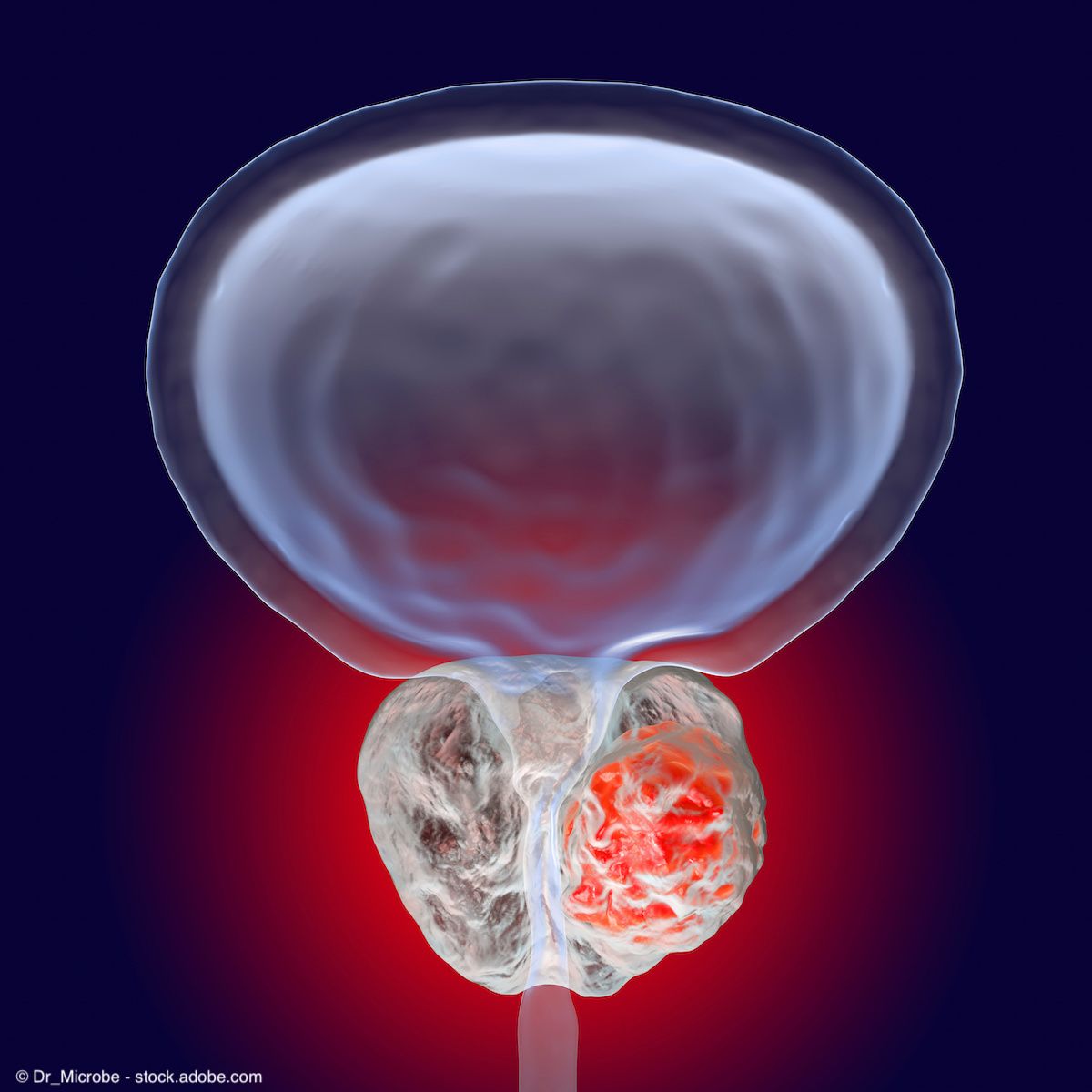PSMA-targeted agent 225Ac-J591 shows promising safety and efficacy in mCRPC
At the time of the data cutoff, a maximum tolerated dose of 225Ac-J591 had not yet been reached.
The alpha prostate-specific membrane antigen (PSMA)-targeted radionuclide therapy 225Ac-J591 demonstrated promising clinical efficacy and safety in patients with metastatic castration-resistant prostate cancer (mCRPC), according to data from a first-in-human phase 1 dose escalation trial (NCT03276572) of the agent.1
The RP2D was determined to be 93.3 KBq/kg, the highest dose level assessed in the study.

The trial included 32 patients with progressive mCRPC that were resistant to or refused other treatment options. In total, 22 participants received 1 dose of 225Ac-J591 at 1 of the 7 dose escalation levels assessed followed by 10 patients receiving expansion at the highest dose level.
Overall, 78% of patients included in the study had previous treatment with at least 2 androgen receptor pathway inhibitors, 63% had previous treatment with chemotherapy, and 46.9% had been previously treated with 177Lu-PSMA. The median patient age was 70 years. The primary end points were the determination of dose-limiting toxicity (DLT) and a recommended phase 2 dose (RP2D).2
Only 1 DLT (4.5%) was observed in a patient from cohort 6 (80 KBq/kg; grade 4 anemia and thrombocytopenia), though no DLTs were observed in cohort 7. At the time of the data cutoff, a maximum tolerated dose (MTD) had not yet been reached. Therefore, the RP2D was determined to be 93.3 KBq/kg, the highest dose level assessed in the study.
The majority of high-grade adverse events (AEs) were hematologic. The investigators also noted that higher-grade hematologic AEs were associated with higher administered radioactivity. Nonhematologic AEs were generally low-grade, with grade 3 AEs only occurring in 1 patient.
Declines in PSA levels and circulating tumor cell control (CTC) were also observed among 71.9% and 75% of patients, respectively. Overall, 46.9% of patients (n = 15) experienced at least a 50% PSA decline at any point, with 34.4% (n = 11) having a confirmed PSA50 response. Further, 59.1% (n = 13) of patients experienced a protocol-defined CTC count response (defined as a drop from 5 or greater CTCs to 4 or less, or a count remaining at 4 or less CTCs at 12 weeks).
The median progression-free survival was 5.6 months (95% CI, 3.7-7.9) and the median overall survival was 10.7 months (95% CI, 6.5-17.2) among all patients. Only Cancer and Leukemia Group B prognostic grouping was found to be associated with survival (HR, 3.94; P = .04) upon multivariable analysis.
The investigators noted that because an MTD had not been reached, a follow-up phase 1/2 study (NCT04506567) is underway to determine the MTD of multiple or fractionated dosing of 225Ac-J591 with or without previous 177Lu-PSMA.
The authors concluded, “In conclusion, to our knowledge, in this initial first-in-human trial using a single-dose of 225Ac-J591, we found reversible toxicity and good antitumor activity in men with pretreated progressive mCRPC despite not selecting patients by PSMA PET and with 47% having had previous 177Lu-PSMA.”1
References
1. Tagawa ST, Thomas C, Sartor AO, et al. Prostate-specific membrane antigen-targeting alpha emitter via antibody delivery for metastatic castration-resistant prostate cancer: A phase I dose-escalation study of 225Ac-J591. J Clin Oncol. 2023:JCO2300573. doi:10.1200/JCO.23.00573
2. National Institutes of Health US National Library of Medicine ClinicalTrials.gov. Phase I trial of 225Ac-J591 in patients with mCRPC. Last updated November 2, 2023. Accessed November 7, 2023. https://clinicaltrials.gov/study/NCT03276572
Dr. Schuster highlights the FDA approval of imaging agent flotufolastat F 18 in prostate cancer
June 22nd 2023"We're excited that the FDA approval of this radiotracer gives us yet more tools at our disposal to diagnose prostate cancer in all its forms, from early to late in the disease process," says David M. Schuster, MD, FACR.
Study shows 177Lu-PSMA-617 is noninferior to cabazitaxel in post-chemo mCRPC
January 3rd 2024Data from the phase 2 TheraP trial showed that 177Lu-PSMA-617 induced comparable overall survival outcomes as cabazitaxel in patients with metastatic castration-resistant prostate cancer who progressed after receiving docetaxel.
